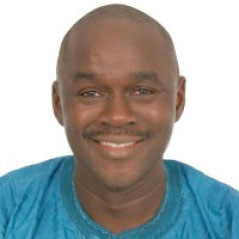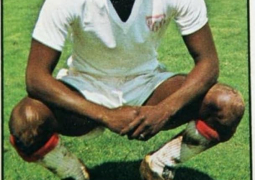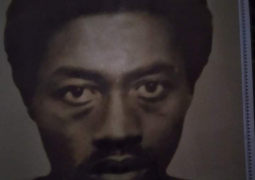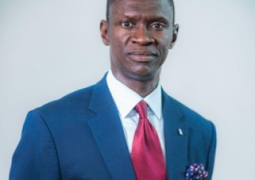
The British Broadcasting Corporation (BBC) was, because of its own doing, recently divorced by an important fan: me. Fondly called the Beeb in the UK, its home country, the BBC is a global media giant. The Beeb is the UK’s national broadcaster and was founded as the British Broadcasting Company almost 99 years ago on October 18, 1922.
In 2019, the BBC had a weekly global audience of 426 million households, almost 93% of which was accounted for by the BBC World Service. The World Service is especially popular in Africa where, for many years, it was the only trusted source of information. Although the World Service’s sway over Africans has declined over the past decade because of the increased adoption of the Internet in Africa, it continues to serve as a go-to source of information for many Africans, especially the Anglophones.
I have been an avid BBC World Service fan practically all my life, having been first exposed to their programs at a very early age. Although my father never had formal western education, he enrolled in a night school following the founding of a school in the 1950’s in our village, Ballanghar. The school’s first Headmaster, the late Alhaji Baa Trawally, helped him achieve a decent command of English, and they became lifelong best friends.
My father also picked up an insatiable appetite for BBC programs, and as such, I grew up listening to BBC and other radio stations on his Pye radio. When I got to Armitage Secondary School in 1969, I found that the school had a senior student who, at dinner, would go on stage in the dinning hall and inform pupils of news from the BBC World Service.
Around the mid-1970’s, I continued listening to BBC programs carried by Radio Gambia when I went to Banjul to continue my High schooling. Although I listened less to BBC World Service programs while I was in Nigeria studying toward my bachelor’s degree, I picked up the habit again upon my return home in 1981. I didn’t listen to BBC programs between 1985 and around October 1987 when I was in the US for graduate studies, but I resumed listening to them upon returning home in 1987. I have vivid memories of me in bed one hot afternoon in Sapu Agricultural Research Station listening to BBC’s coverage of the massacre of demonstrators in Tiananmen Square in Beijing, China, in 1989 by Chinese authorities, and feeling very sad at the senseless loss of lives.
When I returned to the US in 1990 for further studies, I continued to listen to the BBC World Service on shortwave. Later, US public and community radio stations began carrying BBC World Service programs, and I religiously listened to Newshour on community radio WORT FM of Madison, Wisconsin (a station at which I was a volunteer). I also welcomed the World Service overnight feed on Wisconsin Public Radio. When I returned home to The Gambia in 2002, the BBC World service was on satellite TV, thus increasing my options for accessing BBC programs.
Looking back, I vividly remember highlights of history as I heard them on the BBC. For example, I recall Lyse Doucet, presently the BBC’s Chief International Correspondent, reporting from Abidjan, Côte d’Ivoire in the early 1980’s when she started her Beeb career.
I also recall the evolution of the BBC World Service’s news offerings from Radio Newsreel to its present flagship Newshour. Other programs I used to enjoy on the BBC include Outlook, and Network Africa, and Focus on Africa. I also listened to Alistair’s Cooke’s Letter from America (which inspired my Letter to America article), and Anything Goes (which inspired the title for my former column of the same name for The Point newspaper). When I met the late Prof. Ali Mazrui, in Madison, I told him much I enjoyed his 1979 Reith Lecture.
I believe my kids also caught the BBC bug. As I was listening to the BBC World Service my son, who was then about 6 or so years old asked me (in Wollof): “Dad, is that James Coomarasamy?,” referring to one of Newshour’s presenters. I was shocked that he was able to blurt out “Coomarasamy” so effortlessly.
Although the BBC has been criticized by many people and for various reasons, I have been a regular and faithful listener and viewer all these years. However, about two weeks ago, I decided to stop listening to or watching their programs because of their nakedly biased coverage of the Taliban takeover of Afghanistan and the shameful withdrawal of US-led forces from the country. For about two weeks after the fall of Kabul, practically all guests on Newshour podcasts or live broadcasts I listened to were anti-Taliban and pro-Western. There hardly were any Taliban representatives or people who could provide alternative narratives to what was happening in Afghanistan — and why.
It was clear to me that the BBC too, was in deep shock and denial, following the shameful loss of Afghanistan by occupying Western-led forces that thought they could push the Afghan peasants around. I simply had had enough. So, I stopped listening to them, and I have not listened them since.
It is interesting that I don’t have any withdrawal symptoms from cutting off the BBC. For an outlet I have listened practically all my life, I found it rather strange that I was relieved to cut them off. For one thing, I no longer need to plan my daily life around them. I have also saved myself being angered, almost daily, by the propaganda I used to hear from them, and that made my blood boil.
Fortunately, the Internet has provided me with alternatives to the BBC. I can now tune into radio stations ranging from Fox News (for the conservative perspective from the US) to Sputnik International (from Russia) and Australia’s ABC NewsRadio. Similarly, I can watch livestreams of Al Jazeera (from Qatar), TRT World (from Turkey), and RT News (from Russia) to name a few.
I believe my cutting off the BBC is a huge loss to them, not in numeric terms, but in terms of goodwill, and the loss of someone who has been a lifelong fan and has encouraged people around the world to join him. I will not miss them. I’m sure.
Katim Seringe Touray, Ph.D., is a soil scientist and an international development consultant. Please visit the online version of the article on Medium (https://kstouray.medium.com) to access the links to sources of information in the article





